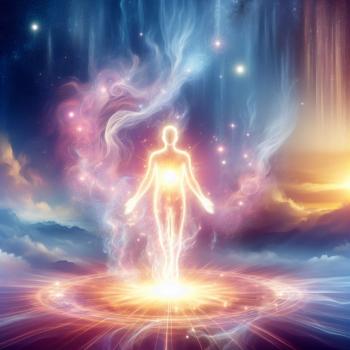Karl Marx, the great prophet of liberation for modern man, considered man’s alienation inextricably connected to his labor. For Marx man was, at bottom, homo faber–man, the maker of things. Further, since man was not created by God, he was not only the maker of tools and artifacts, but, in a sense, the maker of himself. Marx didn’t mean man literally creates himself, in the strict metaphysical sense (man, for Marx, is an accident of nature), but he did mean that in the course of history man defines and redefines what he is and what he is to become.
In so doing, man first shapes himself and then subsequently labors to create the world in the way he sees fit. This shaping of man and his world comes through a process of conflict: the dialectic. For Marx specifically, alienation and oppression come when men, at least the majority of them, feel alienated from their creative labor. When one is unable to fully participate in the process of self-definition and self-creation due to economic constraints or exploitation, then alienation, oppression and degradation follow. To be alienated from the process of self-definition and self-creation is to be in need of liberation.
It was through the economic revolution of marxist Communism that this alienation from man’s own labor was to be overcome and his liberation realized. But liberation did not come. Instead tyranny and carnage ensued. In the middle of the great Communist project, therefore, a new, more nuanced, Marxism, “Critical Theory,” proposed a better solution to man’s alienation than the strictly economic Marxism of the 19th century.
Critical Theory and Man as Social Creature
The second-wave critical theorist, Jürgen Habermas, posited that one of the main reasons classical Marxism failed was Marx’s overemphasis on man as homo faber. Man is not only productive, man is also social. It is not, according to Habermas, only or primarily man’s labor that constitutes his identity. It is also his social relations and the moral nature of those relations.
Habermas, writing in the second half of the 20th century, argues that Marx was too “bedazzled” (see Jacob Klapwijk, Dialectic of Enlightenment, 71) by the 19th-century’s mechanization of production to see in their right light these other, fundamental components of man’s identity. Marx was too mono-focal in his analysis of human identity, and while he did not totally neglect the social nature of man, he failed to see properly that man is more than the work of his hands. As such economic liberation is not sufficient for man to be truly liberated. More would be required than just a dialectic of materialism. Thus, between Hegel’s idealism and Marx’s materialism, there is social reality.
Habermas, therefore, sees the human person as constituted by two features: the productive and the social, or the “interactive”(Klapwijk, 69). Further, given this ontology of the person, Habermas’ critical theory argues there are two types of knowledge that flow from it. From man’s self-constitution through his labor, he receives “productive knowledge.” We might call this a kind of ability knowledge or skill knowledge– the “know-how” required to do a thing well in some practical way. The second type of knowledge comes as man tries to constitute himself through social interaction. Habermas labels this “reflective knowledge.” Both of these ways of knowing are governed by man’s engagement with nature and with each other, respectively.
In looking at the present state of modern industrialized nations, however, Habermas realized that while much of man’s engagement with nature has been successful, meaning man has asserted himself over nature, gaining productive knowledge and dominance, still, radical improvements of material conditions and the means of production have failed to liberate man from his existential bondage. Man is still alienated from himself in spite of his conquest of nature as homo faber. Something is missing in man’s historical movement toward total liberation. Something other than his productivity looms.
Critical Theory and The Need For Social Freedom
Habermas maintains that in spite of the incredible welfare for material needs that modern, liberal societies have produced, still “Liberation from hunger and misery does not necessarily converge with liberation from servitude and degradation” (Klapwijk, 71). In short, even if we are fully supplied with abundant food, above adequate housing, financial stability and enough discretionary wealth to sustain a steady supply of leisure, we continue to experience alienation from our authentic selves. We still desire a freedom that the wealth of nations simply cannot provide. 21st-century American culture, the most decadent in human history, testifies to this fact in glaring fashion.
Since man is constituted by these two things: his labor vis-a-vis his natural environment and his interaction within society, the only thing that remains in places like America, Canada and Europe is to be liberated socially. As such, there must be a shift from Marx’s focus on the means of production to a focus on social relations. However, before social relations can be reconstituted “in a rational way,” our social identities must first be established. To establish our social identity, however, we must deconstruct what critical theorists call “ideology.”
Critical Theory and Deconstructing Ideology
Ideologies of the past prevent us from progressing in the process of self-construction. They do this by proposing beliefs and values as objective, universal and fixed. In short, ideologies effectively tell us what we are and how we should act in virtue of that. According to critical theorists, these universalizing ideologies cannot stand, if we are to experience liberation.
Dutch philosopher Jacob Klapwijk explains this “problem” of ideology in his book Dialectic of Enlightenment: Critical Theory and the Messianic Light:
Ideology is the very force that–deceptively but effectively– restricts communication, puts a legal stamp on the prevailing relationships of labor and authority, and gives society its outward appearance. Ideology blocks the self-formative process of humankind.
Klapwijk, 71
For Habermas, and his Frankfurt School predecessors, ideology must be dismantled in order for man to find his true freedom. Only critical thinking, and critical theorizing, is capable of doing this. Those who do not follow in the process of critical theorizing are stuck in ideology. They are opponents of those working toward liberation. They are adversaries to humankind’s project of self-formation and self-attained freedom. They are “ideologues” drowning out the genuine cry for freedom.
Thesis-Antithesis-Synthesis: Or Hegelian Reconciliation
Habermas, being a good German, does not desire however to oversee the dismantling of ideology in a personal sense. Inevitably, those trapped in ideology would be accepted by those seeking to dismantle it. There would be a kind of social reconciliation between the warring factions– factions that, by this time, have become politically polarized. The reconciliation of those stuck in ideology and those who are engaged in the critical dismantling of it, will occasion the dawn of something like a new Aufklärung (Klapwijk, 73)– a second Enlightenment.
One could call this a type of “Hegelian reconciliation,” as ideologues holding on to traditional theories and critical theorists advancing radical critiques of traditional values and knowledge, come together to form a new social paradigm. The conflict that comes before the merging of the two, however, is not pleasant. It is painful and possibly even violent.
Of course we all know, especially that psychologists have now confirmed it (he wrote sarcastically) that forgiveness and reconciliation are very therapeutic for the human species. And so too did Habermas see this social dialectic as akin to a freudian process of psychological healing:
The theory itself amounts to a therapy….Habermas’s favorite illustration of this is Freudian psychology. In essence, what happens in psychoanalysis is that a ‘process of enlightenment’ is initiated and the patient is driven to ‘self-reflection’….The patient has to call to mind the repressed conflicts of the past [e.g., in America: slavery, Jim Crowe, woman’s suffrage, historical oppression of Native Americans, etc.] that have previously been coming to expression only in disturbed communication and divorced symbolism, in misconceptions and obsessions. By this means the patient can be freed from repression.
Klapwijk, 74
In America today this dynamic plays out quite frequently. We are told, for example, that it is the socially white, conservative, heterosexual, cis-gender, religious male who is essentially the patient in the freudian relation. Alternatively, the critical race or gender or queer theorist is the therapist. And this is regardless of whether they, the critical theorist, are personally white, heterosexual, cis-gender, male or religious.
And so the basic set-up is this: the non-white, liberal, non-heteronormative, gender neutral or queer theorist will inevitably forgive their ideologue counterpart who, in the past, has oppressed them on account of his hitherto believed to be fixed and universal ideology. In doing so, a new paradigm of reconciliation will be realized and man can reconstitute himself once again. Of course, in the new paradigm it will not be mankind reconstituting himself, but “itkind” reconstituting “itself” or “personkind” reconstituting “personkindself,” or something like that.
But this process is all dependent on two very crucial factors: first, the white, conservative, heteronormative, male, cis-gender ideologue must be willing to admit their guilt and repent of their ideological sins. After all, these sins did not remain in the abstract historically. They took on real, concrete form (which, in many instances is an undeniable fact). That said, it could also be the case that the ideologue repents but their critical theorist counterpart refuses to forgive. So whether or not Hegelian forgiveness and reconciliation can occur is dependent on responses from both ideologue and critical theorist. For the new social paradigm to emerge there must be some kind of asking for and granting of forgiveness.
Critical Theory’s Troubling Paradox
There is only one small problem with this picture however: it is patently false. History just isn’t like this and neither is humanity. Klapwijk implicitly demonstrates the problem with critical theorist thinking when he points out a paradox in the Frankfurt School’s analysis of social systems. The paradox shows critical theory’s central problem: it is self-defeating.
First, critical theorizing does, on the one hand, provide a valid critique of the Western, capitalist system:
The Frankfurt scholars critical theory is first of all a razor-edged critique of Western society….their criticism has dug right under the foundations of those basic democratic structures of the so-called free world that were always taken for granted. Stripping away the ideological veneer compels society to think again about the aims of education, about the bases of law and the state, about the management of technology and the economy, indeed about the fundamental direction that Western culture and society have long been taking and that has proved to be more and more aggressive and imperious.
Klapwijk, 86-87
Anyone who has experienced the explosion of advocacy for critical race or gender theory and social justice in the form of DIE (Diversity, Inclusion, Equity) in our schools and institutions, will see the basis for these political agendas in the earlier theorizing of the Frankfurt school philosophers Klapwijk references. The Frankfurt school called into question the entire foundation of Western society, just as critical race and gender theorists do today. However, being fair, and a much less political, the Frankfurt school philosophers also applied the same critical lens elsewhere, namely, to the very system seen as most antithetical to Western capitalism.
The Frankfurt scholar’s criticism is directed no only against the Western world. It also includes a fierce indictment of left-wing state bureaucracies and collectivist systems in Eastern Europe or anywhere else where they occur, from Cuba to China. What is surprising about Neo-Marxist criticism in this connection is the claim…that capitalism and left-wing systems are close relatives, offspring of the same stock. They may be adversaries on the economic plane, but as conceptions of society and culture they are both inspired by one and the same principle, the “principle of domination.”
Klapwijk, 87
In other words, the two major economic and social systems in the modern era most diametrically opposed to each other–Capitalism and Marxist Socialism– are, at root, born of the same principle. Klapwijk points out that for many this is “a painful observation.” For on the one hand you have “thousands of young seals…killed by being battered to death so that their skins will not be damaged…[being done] in the name of free commerce.” While, on the other hand, you have “on the Killing Fields of Cambodia hundreds of young people battered to death in order to save bullets….[being done] in the name of a liberating revolution” (87).
In short, there is something common to all men, something prior to the social system they develop and in which they live that is far deeper and far more innate to them than the principles of the system itself. There is something about us as creatures that, prior to any social structuring, including very different structuring, infects any project of socialization from the very start. And this is what all men call “human nature.”
The paradox of human nature means that no matter what system we build for ourselves, no matter how much we think we have found the way to goodness, truth, beauty and liberation, we eventually wind up where we started. This is regardless of how much the systems we construct contrast and how radical the redefinition of our selves seems to be.

The Self-Defeating Nature of Critical Theory
Critical Theory, and any particular critical theory, is therefore self-defeating in that it claims, on the one hand, we alone are the sole producers and definers of our own identity and of the world in which we live. To define oneself and one’s world is, supposedly, a liberating act. However, at the same time, any system we create and any definition we give ourselves, or our world, itself becomes worthy of critique. But, in being worthy of critique (a criticism that usually only comes after an exuberant body count and endless number of mass graves), this proves not only that we share something in common, something that exists prior to social theorizing or self constructing, but that this thing we share in common is, in fact, quite flawed.
And so all the historical evidence points to an anthropological reality that man is fundamentally defined by something prior to his theorizing about himself. Man is not infinitely malleable. Man cannot determine his own nature or the nature of his world. What the Frankfurt philosophers called “the principle of domination” is, apparently, not something that man chooses or constructs but instead something man is.
Moreover, it is not just some men, or some race of man, or some gender or some social class that is imbued with this principle. It is all men, all races, all genders (all two of them!) and all cultures that are this way. No one individual, no one group is free of the principle. No one individual or group is exempt from it. And so no one individual and no one group is truly liberated from its grasp, since no one individual or group can recreate our shared human nature. It is a nature that abides innately by the law of domination. And this law is what all men call “sin.”
Who Will Save Us From This Spirit of Domination?
But is there really no one person or group that can recreate this human nature, or undo the law of domination that rules over it? Is there no stage in human history where we will finally be free from it?
To the first question we would have to say there is at least no one person or group which has only a human nature that can do so. But perhaps there might be one who has not only a human nature but also a nature outside of, or transcendent to, human nature that could recreate it. One who possesses both a human and a non-human nature, a nature beyond our own, perhaps could undo the law of domination that exists in all of us. As to the second question, we might say that if there is a nature beyond our own, then there might be a history beyond our own space-time history. If there is a transcendent time, a time above time, then not only might our human nature find redemption but also the history in which that nature resides.
The Frankfurt school theorists, and most of today’s critical theorists, have put their hopes for salvation in a theory– the theory of dialectic. According to the critical theorists, it was supposed to be in the historical process of man thinking about himself in a self-critical mode that salvation and redemption would come. However, it has not come, nor will it come, since man can never get outside himself to fix that which has already corrupted the process of dialectic itself.
Critical theorists who “fetishize” the process of critical dialectic have broken the first commandment (Klapwijk, 97). They have made an idol of of something which is neither worthy of worship nor capable of saving us from ourselves. The dialectic has no real power to liberate and our own thinking sheds no real light on ourselves.
Klapwijk, therefore, goes on to suggest that in light of reasons failure, there must be some other light, a Messianic light, that man must seek if true liberation is to be found:
There is reason to be fearful. There is also reason to be confident. For the most basic thrust of the gospel is salvation. Cutting across the mythical belief in the inherent forces of the cosmos and the immanent potential of man is the redemptive call to faith in other forces–the regenerative forces of the age to come, the ultimate remedy of a God who remains faithful to his creation. This belief is no mythology. For it is secured and guaranteed in a personal bond with Jesus, the Messiah himself, who anticipated the future in his death and resurrection and who lets his followers partake in this precious secret.
Klapwijk, 97
St. Paul said something similar when he wrote to the church in Galatia around the year 50 AD, only a few years after Jesus’ resurrection,
For freedom Christ has set us free.
Galatians 5:1
The cry for freedom is the most genuine cry of the human soul– of every human soul. We were made to be free, to “freely eat” of every good tree God had made for us. Yet the yoke of sin has enslaved us. No theorizing, nor rationalizing, nor system building can undo what we have become because of sin. The only answer to our cry for freedom is the Messianic light, which is the light of Christ.

















